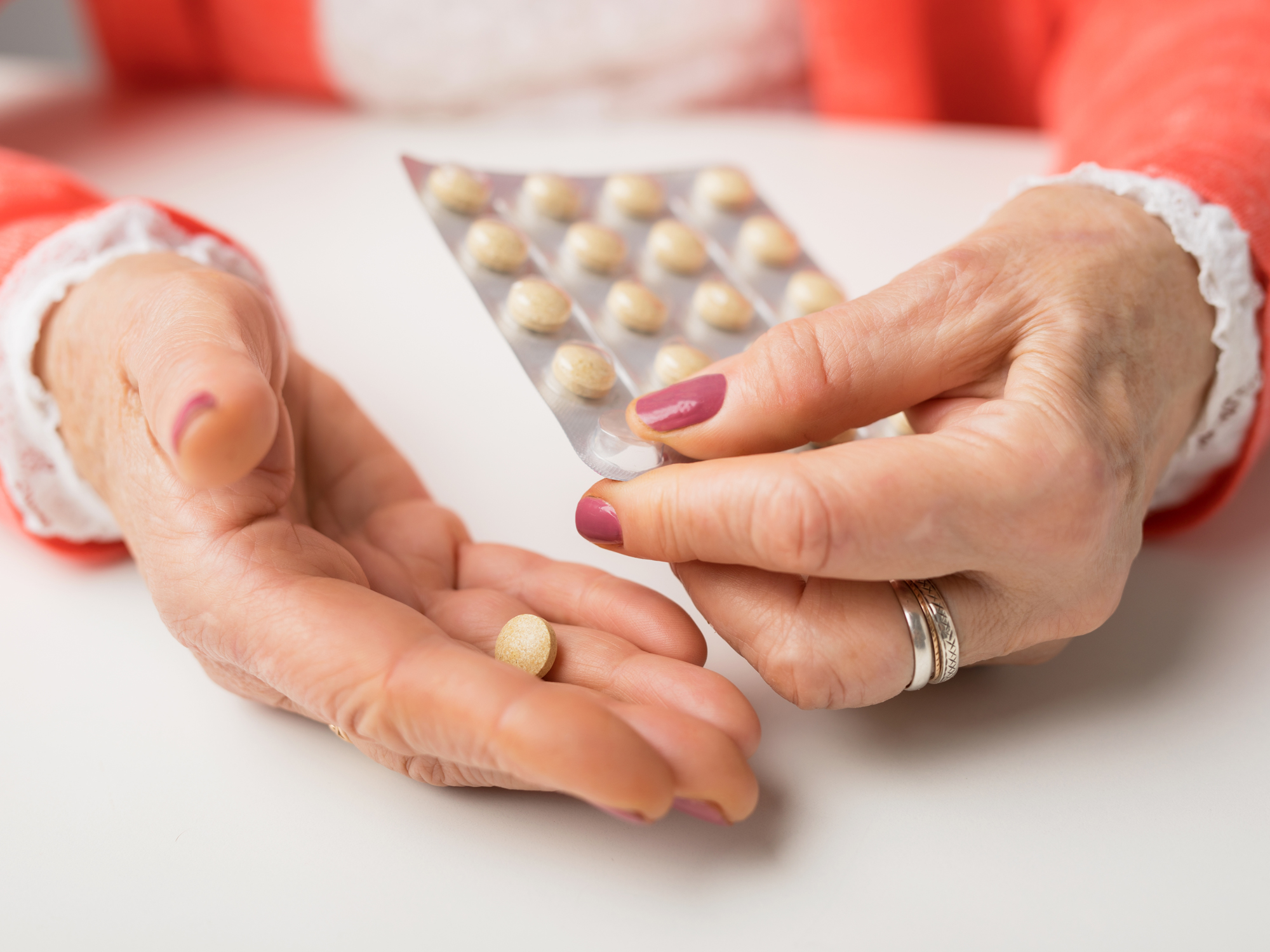Get Easy Health Digest™ in your inbox and don’t miss a thing when you subscribe today. Plus, get the free bonus report, Mother Nature’s Tips, Tricks and Remedies for Cholesterol, Blood Pressure & Blood Sugar as my way of saying welcome to the community!
Hurting? Swap your NSAID for this vitamin

Arthritis, menstrual cramps, fibromyalgia, back pain — you’ve probably dealt with one or more of these forms of chronic pain in your lifetime. And maybe you’re still trying to rein in your chronic pain… even after you’ve tried everything conventional and alternative medicine has to offer…
But don’t give up hope: There’s a vitamin that can change your life by drastically reducing your pain — and won’t increase your heart attack risk, like dangerous NSAIDs.
It’s a vitamin that can also strengthen your immune system, slow aging and fight a long list of chronic diseases. That means, if you get enough, you’ll be doing a lot more than taming your chronic pain, you’ll be helping your body attain optimum health.
So, which vitamin could finally put your chronic pain (and other health issues) to bed?
Well, a recent review of the available research shows that if you want to feel no pain, you better be extra certain to get your daily dose of D…
Vitamin D does your pain response good
A review of the scientific literature related to vitamin D and pain management conducted by researchers at The Federal University of São Paulo in Brazil found a definite link between vitamin D levels and your perception of pain…
More specifically, these researchers concluded that vitamin D affects the body’s inflammation response in a way that lowers the sensation of pain. That makes sense since vitamin D deficiency is tied to an increased risk for pain-related conditions like fibromyalgia and rheumatic diseases.
Researchers believe vitamin D’s ability to regulate your sleep cycle may add to its ability to reduce your pain too…
You see, the link between pain and poor sleep is well-established. You may have even experienced this vicious cycle yourself… your pain prevents you from sleeping, and the less sleep you get, the worse your pain gets.
Well, researchers suspect there’s a three-way connection between sleep, pain and vitamin D. But they’re still figuring out the nitty gritty of how this connection works and what it means for chronic pain sufferers.
“We can hypothesize that suitable vitamin D supplementation combined with sleep hygiene may optimize the therapeutic management of pain-related diseases, such as fibromyalgia,” said Dr. Monica Levy Andersen, lead researcher in the study. “It is necessary to understand the possible mechanisms involved in this relationship, including immunological and neurobiological pathways related to inter-relationship among sleep, vitamin D and pain.”
So, even though researchers don’t know exactly how this relationship works, they do know that vitamin D regulates sleep and reduces pain. That means, it’s doing double-duty for chronic pain sufferers like you by keeping you well-rested and pain-free.
How much vitamin D do you need?
When it comes to getting your daily dose of D, there’s a lot of conjecture about how much you need. For starters, the Recommended Daily Allowance is woefully inadequate.
How much should you take? To get levels up to where they need to be, adults can safely take 4000 to 5000 IU daily.
You can start eating more vitamin D-rich foods (like mushrooms, eggs and fish), sitting in the sun without sunscreen for about 20 minutes per day and taking vitamin D daily in its most absorbable form: vitamin D3.
By adopting these three simple habits, you may finally put your chronic pain to bed once and for all.
Editor’s note: Did you know that when you take your body from acid to alkaline you can boost your energy, lose weight, soothe digestion, avoid illness and achieve wellness? Click here to discover The Alkaline Secret to Ultimate Vitality and revive your life today!
Sources:
-
“Vitamin D supplements could help pain management.” — MedicalXpress. Retrieved May 26, 2017.
-
Levy Andersen, et al. “The interfaces between vitamin D, sleep and pain.” — Journal of Endocrinology, 2017.













